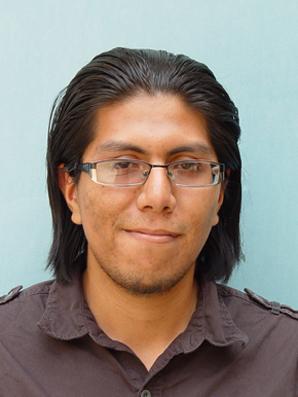History professor Gordon Alexandre received the Dr. William L. Parker Award on Sept. 2 in the student center for his work as chief negotiator and two-time president of the Faculty Guild.
“My service to the college has been as the leader of the teacher’s union for 20 years,” said Alexandre.
Academic state senate president Michael Scott presented the award to Alexandre at a faculty luncheon.
“He’s an outstanding leader— an individual who was able to bring groups together,” said Scott. “We couldn’t have asked for a better person to lead us.”
According to Governance Office Coordinator Frankie Strong, the Parker Award is given to staff members who provide outstanding service to the campus. Awardees have their names engraved on a plaque in the administration building.
Alexandre was hired in 1984. He became involved in the union in 1987, and in 1988 he joined the negotiations team.
“I’m not getting the award for being a good boy,” said Alexandre. “I’m getting it for being in a position that’s often a pain in the neck to others.”
Alexandre became chief negotiator for the guild in 1989 and served from 1989 to 1995, 2000 to 2007, and 2010 to 2011. He also served as guild president from 1995 to 1996 and 2007 to 2009.
During those years, a number of issues arose between the Board of Trustees and the guild—some larger than others.
According to Alexandre, one of the larger arguments with the board occurred approximately two to three years ago with the previous college president, Audre Levy.
“The board refused to listen for a long time to the faculty over not offering her an additional fourth year of employment,” said Alexandre.
Eventually, the board decided to side with the faculty after issues arising with Levy’s methods of administration. The board ended up having to buy Levy out for over $300,000, said Alexandre.
“It was a big mistake on the board’s part,” said Alexandre. “It came from not listening to the guild and the senate.”
This past summer session was another significant issue between the board and the guild, where according to Alexandre, the board refused to ratify an agreement over classes.
The board and faculty held an indecisive meeting on May 16 to discuss whether or not to offer classes over the summer.
A board meeting was held on May 20 where they ratified an agreement offering 200 summer courses and reducing faculty pay to 60 percent of their regular pay, an agreement that Alexandre states was forced upon the faculty.
“The way they handled summer school in 2011 was very amateurish and unprofessional,” said Alexandre.
Clashes between the board and faculty have caused tension between the two parties, said Alexandre.
“I hope that the relationship between the guild and the board improves,” said Alexandre. “The board has to realize that they don’t know everything and that the faculty knows a lot more than they do.”
However, the current relationship between staff and administration is positive.
“I say the guild has a pretty decent relationship with (college president) Dawn Lindsay and hope that it continues to develop,” said Alexandre.
Over the years, Alexandre has found that trust and respect are key in any form of negotiation.
“If you respect the other side, and trust the other side, you can generally work through your disagreements,” said Alexandre. “That building that trust and respect is key to having a good relationship.”
The Parker award was first awarded in 1993 to philosophy professor William L. Parker, and has been awarded annually since. A committee of former Parker Award recipients select a faculty member to receive the award based on the person in question’s services and contributions to the campus.
Political Science professor John Queen was last year’s recipient of the Parker Award.

